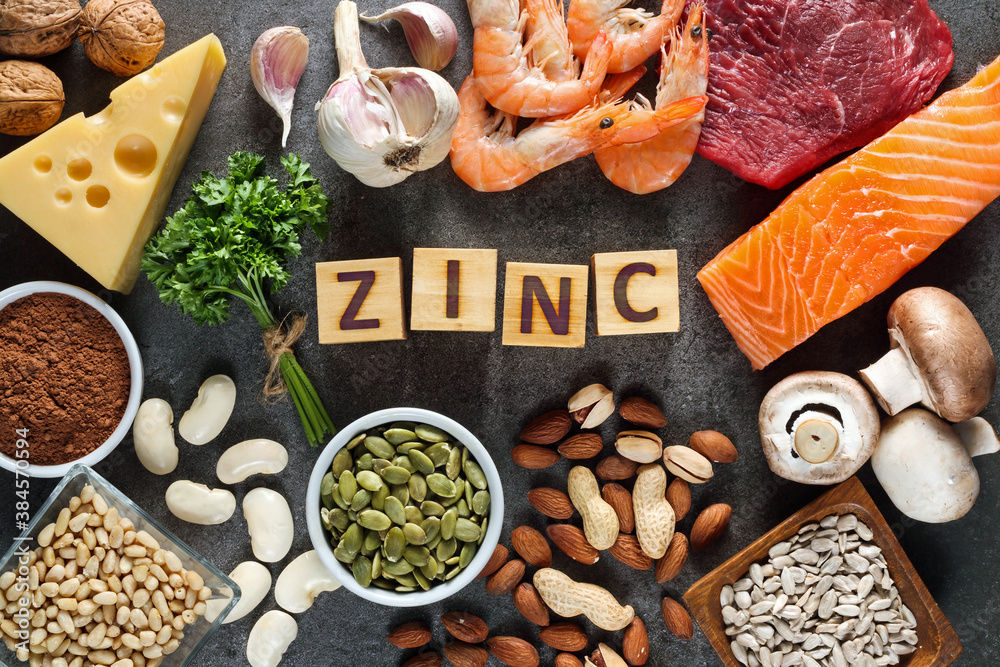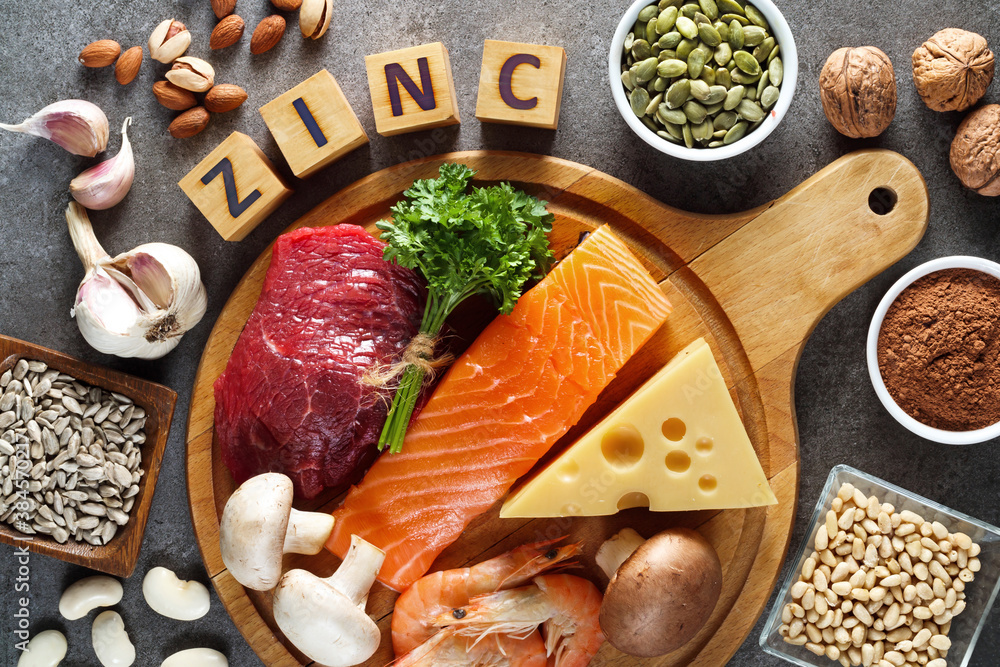Zinc
When it comes to essential nutrients, zinc often stands in the shadows of its more prominent counterparts. However, this unassuming mineral plays a crucial role in numerous physiological processes, making it a vital element for our overall health and well-being. From bolstering the immune system to aiding wound healing and promoting cognitive function, zinc‘s remarkable benefits are worth shedding light on. In this comprehensive exploration, we delve into the various ways zinc positively impacts our bodies and why ensuring adequate intake of this valuable mineral is essential for optimal nutrition.
Fortifying the Immune System
One of zinc’s most notable roles is its impact on the immune system. It is a key player in the development and functioning of immune cells, such as white blood cells and T-cells. These cells form the frontline defense against pathogens, viruses, and bacteria, protecting the body from infections and illnesses. With sufficient zinc levels, our immune system can mount proper responses to ward off invaders effectively. Studies have shown that zinc supplementation can reduce the duration and severity of common colds, showcasing its potential as a valuable addition to immune-boosting measures.
Supporting Growth and Development
Zinc plays an indispensable role in growth and development, especially during childhood. It is essential for cell division and DNA synthesis, which are fundamental processes for tissue repair and growth. Ensuring adequate zinc intake during pregnancy is vital for healthy fetal development. Moreover, it supports optimal growth during early life stages, allowing children to reach their full potential.
Enhancing Wound Healing
Beyond immunity and growth, zinc is a powerful ally for wound healing and tissue repair. It contributes to collagen synthesis, a structural protein essential for the skin and other connective tissues. By aiding collagen production, zinc accelerates the healing of wounds, cuts, and abrasions, reducing the risk of infection and promoting faster recovery.
Cognitive Function and Mental Health
Recent research suggests that zinc may have an impact on cognitive function and mental health. As a key player in neurotransmitter function, zinc influences mood and cognition. Preliminary studies have indicated that zinc supplementation may improve memory and attention in both children and adults. Additionally, zinc’s potential positive impact on mood disorders, such as depression and anxiety, presents exciting prospects for mental health research.

Promoting Healthy Skin and Acne Management
Zinc’s anti-inflammatory properties extend to promoting healthy skin. Topical zinc treatments have been used to reduce inflammation and soothe irritated skin in conditions like acne. Furthermore, oral zinc supplements have shown promise in managing acne by regulating sebum production and controlling bacterial growth on the skin’s surface.
Antioxidant Defense
Zinc plays a vital role in antioxidant defense. It acts as a co-factor for various antioxidant enzymes, including superoxide dismutase (SOD). These enzymes are responsible for neutralizing harmful free radicals that can damage cells and contribute to chronic diseases. By supporting our antioxidant defense system, zinc helps protect against oxidative stress and the aging process, promoting overall health and longevity.
Maintaining Healthy Vision
Zinc’s concentration in the retina, the light-sensitive tissue at the back of the eyes, underscores its importance in visual function. It helps maintain retinal health and may contribute to reducing the risk of age-related macular degeneration (AMD), a leading cause of vision loss in older adults.
Bone Health
Zinc is essential for bone mineralization and the regulation of bone density. It aids in the synthesis of bone matrix proteins and supports the activity of osteoblasts, the cells responsible for bone formation. As a result, zinc is crucial for maintaining healthy bones and preventing conditions like osteoporosis.
Hormonal Balance
In addition to its roles in immunity and growth, zinc is involved in hormone synthesis and regulation throughout the body. It is particularly important for reproductive health, contributing to the production of sex hormones like testosterone in men and estrogen in women. Adequate zinc levels are essential for fertility and reproductive function in both sexes.
Diabetes Management
Preliminary research suggests that zinc may have a role in diabetes management. It is involved in insulin synthesis and secretion, and zinc supplementation has been shown to improve insulin sensitivity in some individuals. Further research is needed to fully understand zinc’s impact on diabetes management.
Sources of Zinc in Nutrition
Zinc is found in a variety of foods, making it relatively easy to obtain through a balanced diet. Some of the best sources of zinc include red meat (beef, lamb, pork), poultry (chicken, turkey), shellfish (oysters, crab, lobster), legumes (chickpeas, lentils, beans), nuts and seeds (pumpkin seeds, cashews), dairy products (milk, cheese, yogurt), whole grains (wheat, rice, oats), and fortified cereals.
It’s important to consider factors that may affect zinc absorption. For instance, phytates found in some plant-based foods can bind to zinc and reduce its absorption. On the other hand, animal-based protein sources tend to enhance zinc absorption. Individuals following a predominantly plant-based diet should ensure they consume zinc-rich foods and consider factors influencing its absorption.

Zinc Deficiency and Supplementation
Despite zinc’s availability in various foods, certain populations may be at risk of zinc deficiency. Vegetarians and vegans, for example, may have lower zinc intake due to reduced consumption of animal-based foods. Additionally, individuals with certain digestive disorders, such as Crohn’s disease or celiac disease, may have impaired zinc absorption.
Zinc deficiency can lead to a range of health issues, including impaired growth, weakened immune function, skin problems, and cognitive deficits. Ensuring adequate zinc intake is crucial, and supplementation may be necessary, especially for those at risk of deficiency. However, as with any supplement, zinc should be taken in appropriate doses, as excessive intake can lead to adverse effects, including copper deficiency and impaired immune function. It is always advisable to consult with a healthcare professional before starting any supplementation regimen.
In conclusion, zinc is a formidable mineral with an array of health benefits. From bolstering the immune system and aiding wound healing to promoting cognitive function and maintaining healthy vision, zinc’s contributions to our well-being are invaluable. By incorporating zinc-rich foods into our diets and ensuring adequate intake, we can harness the power of this essential mineral.
How useful was this post?
Click on a star to rate it!
Average rating / 5. Vote count:
No votes so far! Be the first to rate this post.





